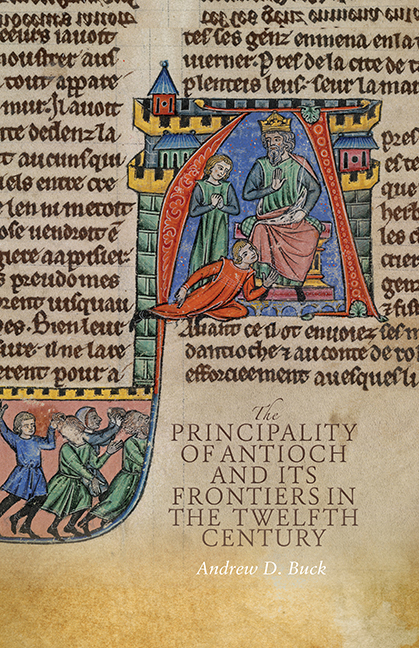Book contents
- Frontmatter
- Contents
- List of Maps
- Acknowledgements
- Abbreviations
- Introduction
- 1 The Extent of the Principality
- 2 The Rulers of Antioch
- 3 Central Governance and Military Service
- 4 Lordship in the Principality
- 5 A Frontier Society? The Nature of Intercultural Relations
- 6 Relations with Byzantium
- 7 Antioch and the Latin East
- Conclusion
- Bibliography
- Index
5 - A Frontier Society? The Nature of Intercultural Relations
Published online by Cambridge University Press: 09 May 2017
- Frontmatter
- Contents
- List of Maps
- Acknowledgements
- Abbreviations
- Introduction
- 1 The Extent of the Principality
- 2 The Rulers of Antioch
- 3 Central Governance and Military Service
- 4 Lordship in the Principality
- 5 A Frontier Society? The Nature of Intercultural Relations
- 6 Relations with Byzantium
- 7 Antioch and the Latin East
- Conclusion
- Bibliography
- Index
Summary
The study of intercultural relations in the Latin East remains one of the most controversial and contested fields in modern crusader studies. Subjected to frequent reinterpretation – from nineteenth- and early twentieth-century historians who viewed the Frankish polities as idylls of convivencia (or living together), to mid- to late twentieth-century scholars who proposed an entirely negative form of exploitative colonialism characterized by social exclusion and fear of the other – the crusader states have often come to reflect contemporary attitudes towards war and inter-faith contact. More recently, attempts have been made to bridge the gap between these polarised models. Benjamin Kedar has sought to show that socio-religious interaction occurred at many levels of Frankish society, and Ronnie Ellenblum has demonstrated that, rather than hiding in their walled cities, the Franks settled in rural areas of the kingdom of Jerusalem, albeit only in regions populated by Eastern Christians. Andrew Jotischky, meanwhile, has argued that Latin interaction with indigenous communities was not defined only by religion, but also by language and social custom. Furthermore, that due to the great divergences – over space and time – within the different polities, it is difficult to find distinct rules of intercultural contact over the entire ‘crusader’ period. Christopher MacEvitt has nevertheless proposed such an overarching model for interaction: ‘rough tolerance’. In this, Frankish overlords granted freedoms to non-Latins, yet also used targeted bouts of violence to keep them in line. Likewise, Alan Murray has offered a hierarchical model for social interaction across the Latin East, in which a group's military capabilities, as well as their suitability for intermarriage, are viewed as the most valuable impetus for their interaction with the Franks. As such, the Armenian Christians, with whom such unions were prominent, sit at the top, followed by the Greeks and other Christians (predominantly the Jacobites and Melkites), while Jews, Samaritans and Muslims are at the bottom.
- Type
- Chapter
- Information
- Publisher: Boydell & BrewerPrint publication year: 2017



